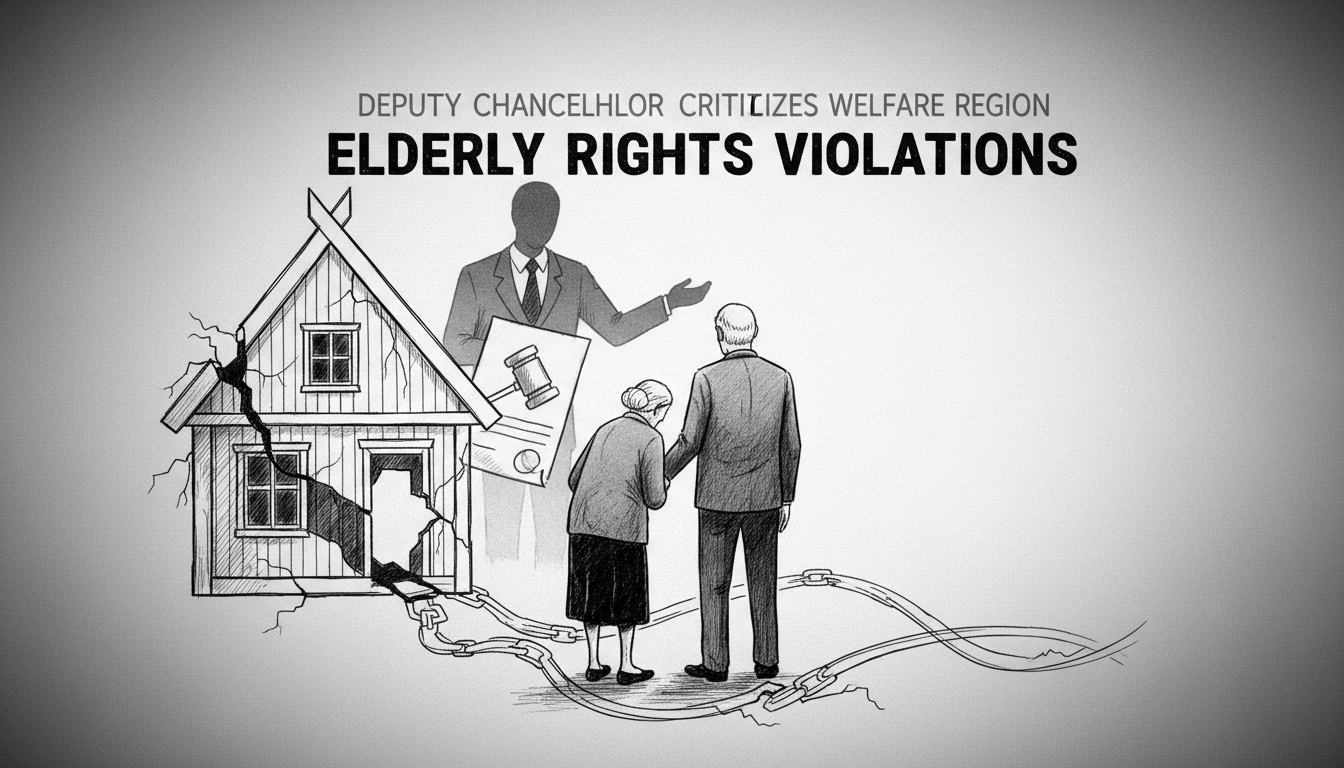A Finnish welfare region faces serious criticism from the Deputy Chancellor of Justice for unlawfully preventing an elderly man from bringing his dementia-stricken wife home from a care facility. The case reveals systemic failures in elderly care procedures that violated the couple's fundamental rights.
Deputy Chancellor Maija Sakslin issued a formal notice to the welfare region after investigating numerous legal violations. The investigation found that authorities repeatedly used police intervention to block the husband from taking his wife home. The elderly couple had explicitly expressed their wish to remain together in their own home despite the wife's dementia condition.
The welfare region offered only two options: 24-hour institutional care for the dementia patient or relocation closer to urban services. Officials claimed providing home care services was impossible because the couple lived 35 kilometers from the nearest town center. The Deputy Chancellor condemned this approach, stating welfare regions must arrange services regardless of location.
Police were called to the care facility when a doctor declared the patient could not be discharged after a short-term care period. The husband insisted his wife was not under compulsory care and should be allowed to return home. Authorities maintained they could temporarily prevent discharge if adequate home services weren't arranged or if discharge was deemed unsafe.
Sakslin identified critical procedural errors. The couple and their relatives never received information about available home care options. No service planning or arrangement had even begun. Social and healthcare professionals acted incorrectly by preventing the husband from taking his wife home over an extended period involving multiple officials.
The Deputy Chancellor noted the doctor's role remained unclear to both the professional himself and the patient's family. The husband apparently believed doctors had authority to decide where patients could stay and when they could leave care facilities. This misunderstanding highlights communication breakdowns in patient rights education.
As a social services client, the patient should have had social services representation during care meetings. Available documentation suggests many welfare region professionals lacked awareness of their legal authority limits and restrictions.
Decision-making procedures for the dementia patient were flawed in multiple ways. From the spouse's perspective, the patient was placed in care without a formal decision. Both spouses were practically prevented from reviewing documents outlining service content and professional assessments of appropriate care arrangements.
The patient's care plan specifically stated documents shouldn't be shared with the spouse because it might encourage disruptive behavior at the care facility. Professionals found it challenging to secure adequate services because the couple resisted recommended service options.
Sakslin considers such situations not particularly rare in Finnish elderly care. Still, the couple should have received earlier information about available service options. Documentation indicates they were never told the dementia patient could return home if they accepted sufficient support services.
This omission occurred despite the caregiving husband repeatedly stating he would do anything to bring his wife home. Welfare region employees dealing with the couple acted incorrectly and against the law according to the Deputy Chancellor's assessment.
Home care services eventually materialized through arrangements with a neighboring municipality. The case exposes concerning gaps in Finland's much-vaunted welfare system, particularly regarding rural elderly care. As populations age and urban-rural divides widen, such failures threaten to undermine trust in public care systems.
The Deputy Chancellor's decision doesn't identify the specific welfare region involved, but the case has broader implications for elderly care standards nationwide. Finland faces increasing challenges balancing patient autonomy with professional oversight as dementia cases rise with an aging population.

